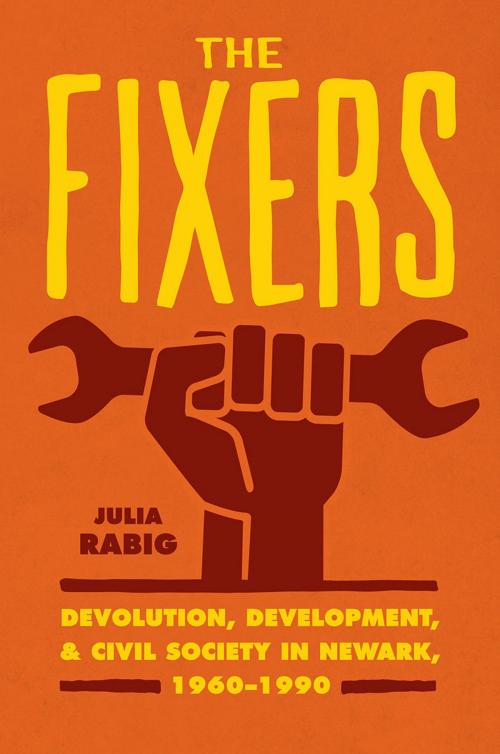The Fixers
Devolution, Development, and Civil Society in Newark, 1960-1990
Nonfiction, History, Americas, United States, 20th Century| Author: | Julia Rabig | ISBN: | 9780226388458 |
| Publisher: | University of Chicago Press | Publication: | September 28, 2016 |
| Imprint: | University of Chicago Press | Language: | English |
| Author: | Julia Rabig |
| ISBN: | 9780226388458 |
| Publisher: | University of Chicago Press |
| Publication: | September 28, 2016 |
| Imprint: | University of Chicago Press |
| Language: | English |
Stories of Newark’s postwar decline are easy to find. But in The Fixers, Julia Rabig supplements these tales of misery with the story of the many imaginative challenges to the city’s decline mounted by Newark’s residents and suburban neighbors. In these pages, we meet the black nationalists whose dynamic organizing elected African American candidates in unprecedented numbers. There are tenants who mounted a historic rent strike to transform public housing and renegade white Catholic priests who joined black laywomen to pioneer the construction of low-income housing and influence housing policy. These are just a few of the “fixers” we meet—people who devised ways to work with limited resources and pull together the threads of a patchwork welfare state.
Rabig argues that fixers play dual roles. They support resistance, but also mediation; they fight for reform, but also more radical and far-reaching alternatives; they rally others to a collective cause, but sometimes they broker factions. Fixers reflect longer traditions of organizing while responding to the demands of their times. In so doing, they end up fixing (like a fixative) a new and enduring pattern of activist strategies, reforms, and institutional expectations—a pattern we continue to see today.
Stories of Newark’s postwar decline are easy to find. But in The Fixers, Julia Rabig supplements these tales of misery with the story of the many imaginative challenges to the city’s decline mounted by Newark’s residents and suburban neighbors. In these pages, we meet the black nationalists whose dynamic organizing elected African American candidates in unprecedented numbers. There are tenants who mounted a historic rent strike to transform public housing and renegade white Catholic priests who joined black laywomen to pioneer the construction of low-income housing and influence housing policy. These are just a few of the “fixers” we meet—people who devised ways to work with limited resources and pull together the threads of a patchwork welfare state.
Rabig argues that fixers play dual roles. They support resistance, but also mediation; they fight for reform, but also more radical and far-reaching alternatives; they rally others to a collective cause, but sometimes they broker factions. Fixers reflect longer traditions of organizing while responding to the demands of their times. In so doing, they end up fixing (like a fixative) a new and enduring pattern of activist strategies, reforms, and institutional expectations—a pattern we continue to see today.















